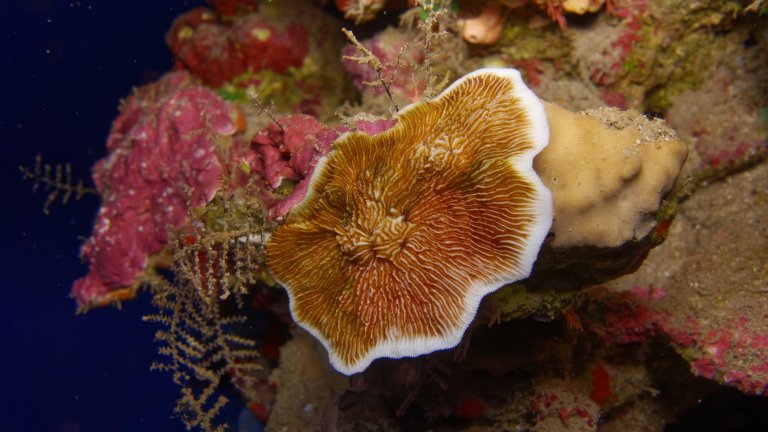
© Gilles SIU / CRIOBE / CNRS Images
View the mediaScientific news
Coral reefs are disappearing at an alarming rate, and along with them, entire ecosystems are now threatened. Scientists are engaged in a real race against time to save these vital actors in marine life.

© Gilles SIU / CRIOBE / CNRS Images
View the mediaSince collective awareness of the climate emergency, corals have become one of the symbols of the impact of human activity on areas which are sometimes wrongly considered to be out of this world and therefore impervious to disasters. However, the opposite is true: coral reefs are disappearing at an increasing and particularly alarming rate, with no less than 14% of corals disappearing worldwide between 2009 and 2018. This is an ecological tragedy, since reefs are a real underwater forest that structure entire ecosystems and provide support and food for countless species. It is also estimated that one marine species in four lives there.
Humans also depend on coral barrier reefs which protect islands by absorbing a large part of wave energy and facilitating fishing. For these reasons scientists are rallying to save the corals, like the researchers at Criobe (Centre of Island Research and Environmental Observatory) in Moorea in French Polynesia. They have been studying coral reefs for 50 years, and are trying to help them adapt to global warming by artificially recreating favourable conditions for their development. However, this battle is now being waged globally, as each tenth of a degree increase in temperature is an additional threat for corals which rapidly bleach and die. A real race against time is now underway.
Discover our recent video report on research at Criobe in Moorea and our photo reports showing the diversity of coral reefs in the West Indies, Polynesia or even in Adélie Land.
Our work is guided by the way scientists question the world around them and we translate their research into images to help people to understand the world better and to awaken their curiosity and wonderment.